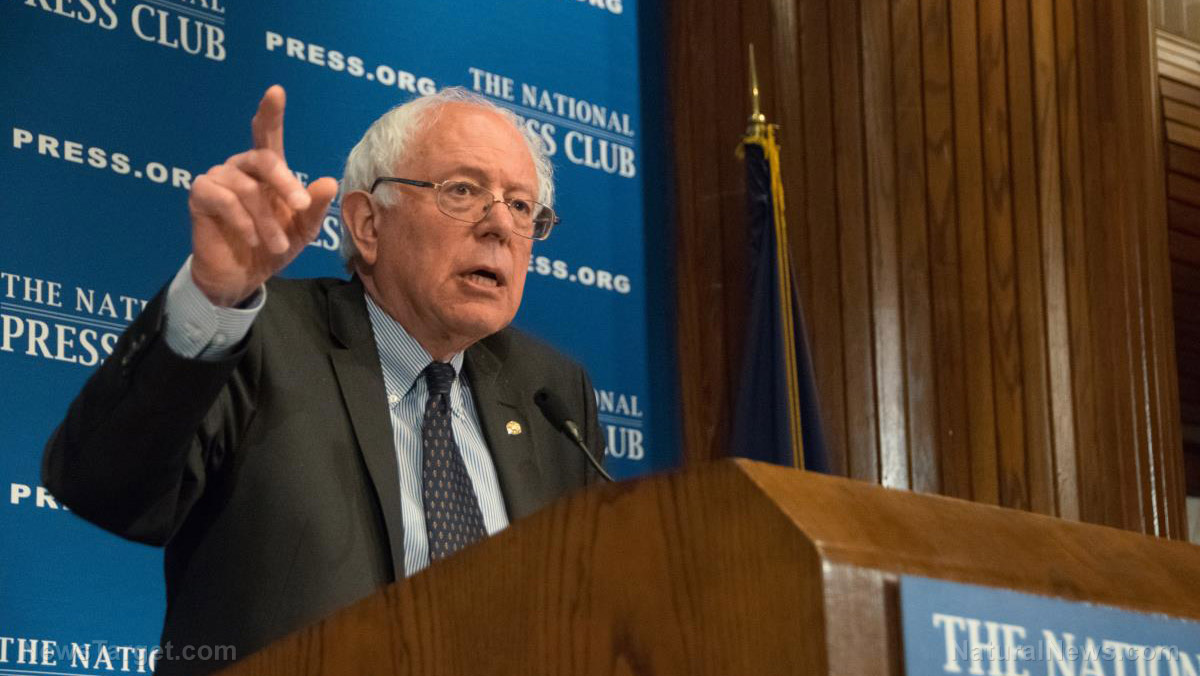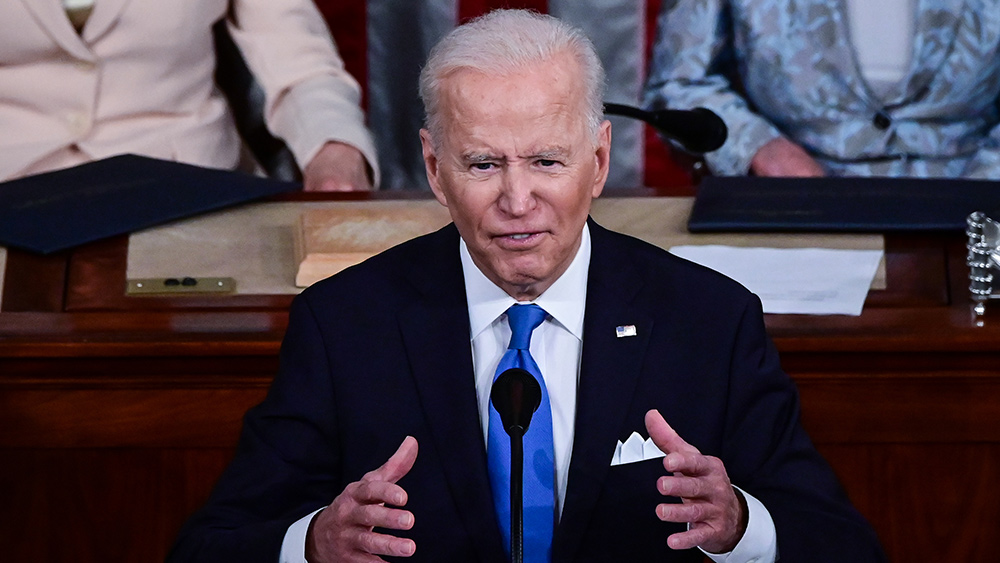House passes record $886 BILLION defense spending bill
12/18/2023 / By Arsenio Toledo

The U.S. House of Representatives has passed a record-breaking $886 billion defense appropriations bill despite strong objections from certain Republican members of the House.
The National Defense Authorization Act (NDAA) passed the House with 310 congressmen voting in favor and 118 voting against, successfully clearing the two-thirds majority required to pass the measure and send it straight to the White House for President Joe Biden to sign into law.
The NDAA authorizes all spending matters that involve military and national security and is separate from the other appropriations bills that set government spending levels.
The vote for this year’s NDAA, which is nearly 3,100 pages long, authorizes a record $886 billion in defense spending for the fiscal year that ends on Sept. 30, 2024, up by three percent compared to last year’s defense allocation.
The Democratic-controlled Senate also backed the NDAA and voted it in on Dec. 13, with strong bipartisan support, with 87 voting in favor and 13 Republicans voting against.
Bill provides pay increases, additional benefits for the troops
Among the main provisions of the bill, it approves a 5.2 percent pay raise for members of the U.S. Armed Forces – the largest single pay raise in more than 20 years.
Other provisions include the expansion of eligibility to the Basic Needs Allowance programs, additional funding for improvements to barracks and other military housing facilities and provisions to allow military services to provide financially struggling junior service members with generous monthly bonuses.
The bill also extends one measure of aid to Ukraine in the form of the Ukraine Security Assistance Initiative, which authorizes an additional $300 million in spending through 2026. However, this figure is tiny compared to the $61 billion military aid package currently languishing in Congress and one that Biden has demanded it approve to help Kyiv continue its fight against Russia. (Related: After squandering $111B on military aid for Ukraine, Biden administration is asking for yet more funds.)
This final version of the spending bill also left out controversial riders that would have addressed certain U.S. social issues due to Democratic and White House disapproval, including proposals to block the Department of Defense‘s abortion travel policy, a proposal to ban providing government-funded medical treatment for transgender troops and the gutting of defense programs that promote diversity and inclusion.
However, Republican pressure was able to push through certain provisions, including one that prohibits government funding for the teaching of critical race theory and establishes a hiring freeze and salary caps for the Pentagon’s diversity, equity and inclusion workforce.
The bill also bans members of the military from displaying unapproved flags, including the rainbow LGBTQIA+ pride flag, at military installations and refunds a Pentagon working group created to issue recommendations on how to root out so-called extremism in the military. Republicans also got the bill to direct Defense Secretary Lloyd Austin to inform service members who had been discharged due to their refusal to get vaccinated on how they can be reinstated.
Watch this clip from Fox Business with writer and economic policy analyst Steve Moore commenting on how the “cancer cell” of the American economy is government spending.
This video is from the NewsClips channel on Brighteon.com.
More related stories:
The government debt crisis that we have been warned about for decades is happening right now.
Sources include:
Submit a correction >>
Tagged Under:
Biden, big government, Congress, defense spending, government debt, government spending, House of Representatives, Joe Biden, military spending, national security, Republicans, Ukraine, White House
This article may contain statements that reflect the opinion of the author
RECENT NEWS & ARTICLES
COPYRIGHT © 2017 NATIONAL SECURITY NEWS




















